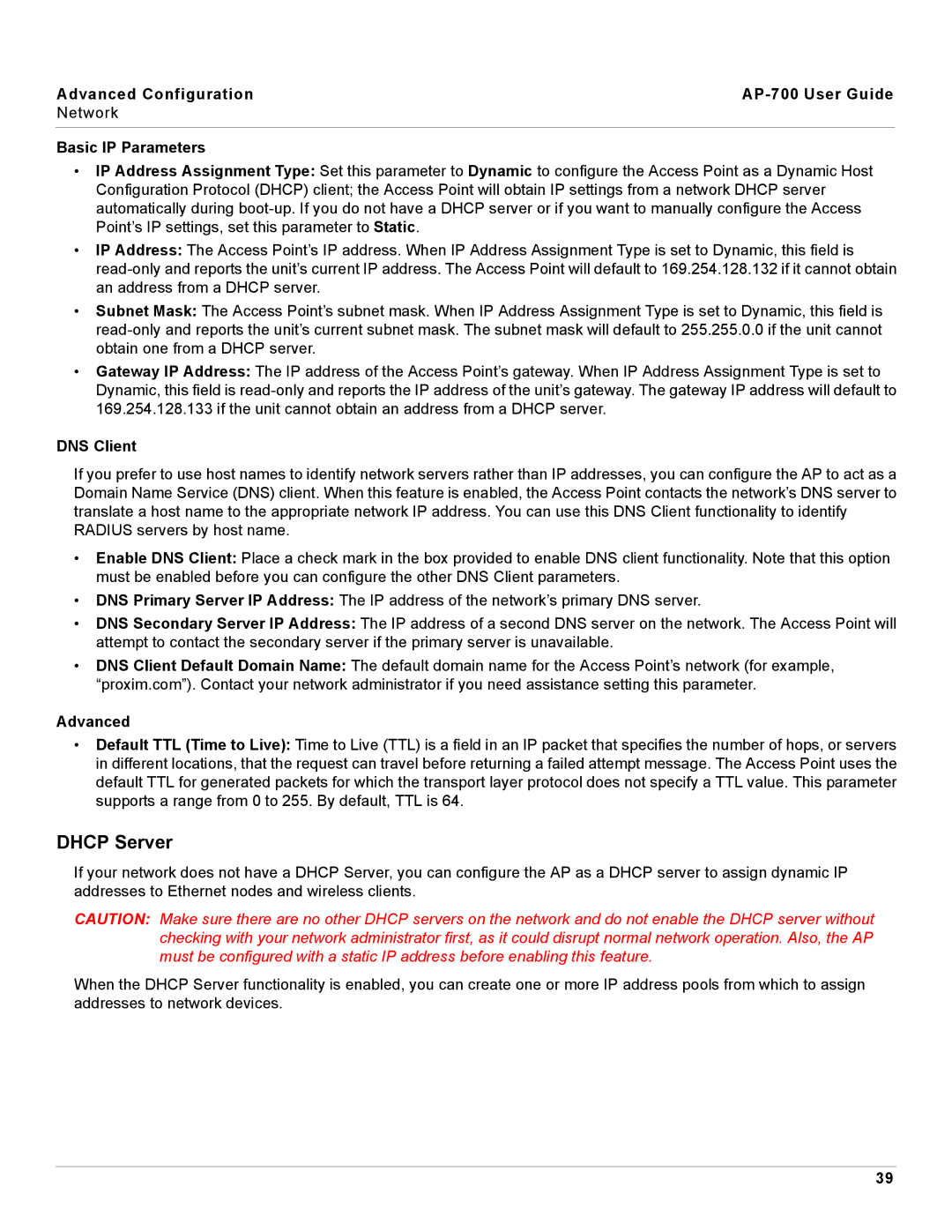Advanced Configuration |
|
Network |
|
|
|
Basic IP Parameters
•IP Address Assignment Type: Set this parameter to Dynamic to configure the Access Point as a Dynamic Host Configuration Protocol (DHCP) client; the Access Point will obtain IP settings from a network DHCP server automatically during
•IP Address: The Access Point’s IP address. When IP Address Assignment Type is set to Dynamic, this field is
•Subnet Mask: The Access Point’s subnet mask. When IP Address Assignment Type is set to Dynamic, this field is
•Gateway IP Address: The IP address of the Access Point’s gateway. When IP Address Assignment Type is set to Dynamic, this field is
DNS Client
If you prefer to use host names to identify network servers rather than IP addresses, you can configure the AP to act as a Domain Name Service (DNS) client. When this feature is enabled, the Access Point contacts the network’s DNS server to translate a host name to the appropriate network IP address. You can use this DNS Client functionality to identify RADIUS servers by host name.
•Enable DNS Client: Place a check mark in the box provided to enable DNS client functionality. Note that this option must be enabled before you can configure the other DNS Client parameters.
•DNS Primary Server IP Address: The IP address of the network’s primary DNS server.
•DNS Secondary Server IP Address: The IP address of a second DNS server on the network. The Access Point will attempt to contact the secondary server if the primary server is unavailable.
•DNS Client Default Domain Name: The default domain name for the Access Point’s network (for example, “proxim.com”). Contact your network administrator if you need assistance setting this parameter.
Advanced
•Default TTL (Time to Live): Time to Live (TTL) is a field in an IP packet that specifies the number of hops, or servers in different locations, that the request can travel before returning a failed attempt message. The Access Point uses the default TTL for generated packets for which the transport layer protocol does not specify a TTL value. This parameter supports a range from 0 to 255. By default, TTL is 64.
DHCP Server
If your network does not have a DHCP Server, you can configure the AP as a DHCP server to assign dynamic IP addresses to Ethernet nodes and wireless clients.
CAUTION: Make sure there are no other DHCP servers on the network and do not enable the DHCP server without checking with your network administrator first, as it could disrupt normal network operation. Also, the AP must be configured with a static IP address before enabling this feature.
When the DHCP Server functionality is enabled, you can create one or more IP address pools from which to assign addresses to network devices.
39
